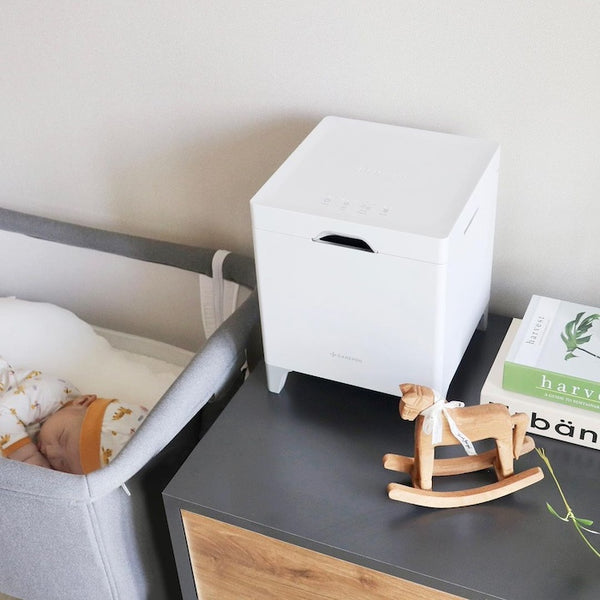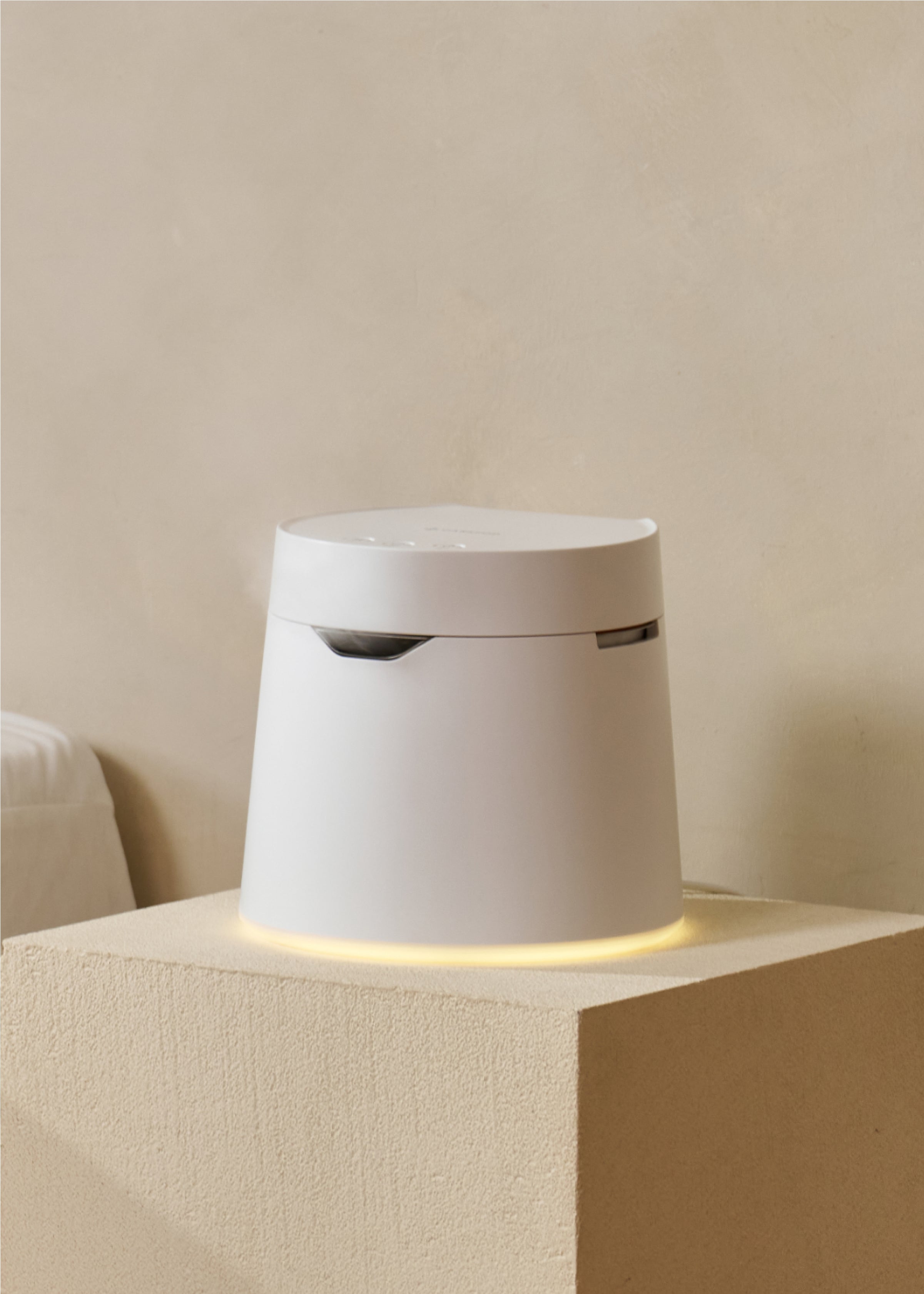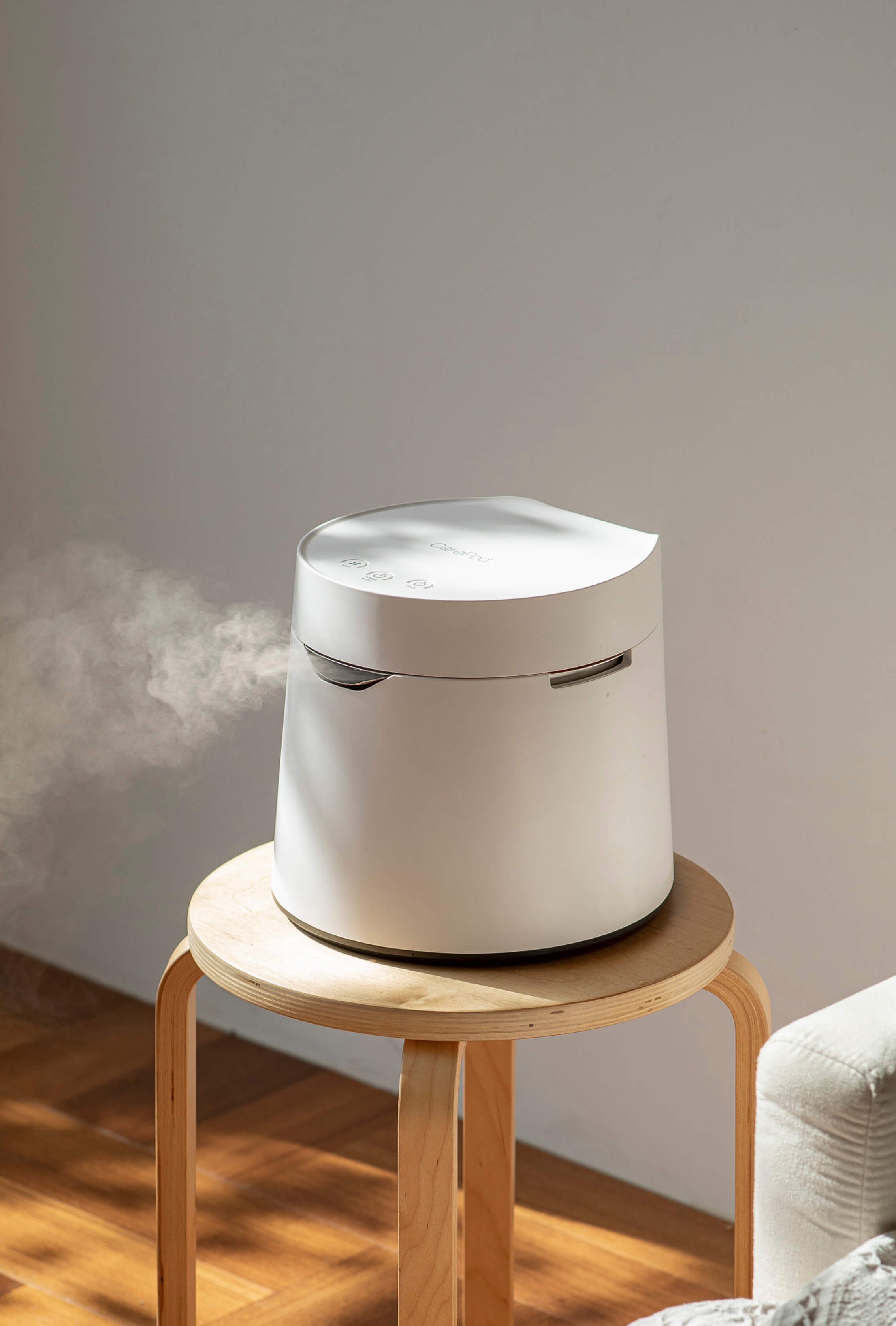How to Build a Peaceful Bedtime Routine for Little Ones

Getting your child to sleep can be incredibly difficult.
Studies show that as many as 20% to 30% of babies and toddlers have trouble sleeping. And every parent has surely dealt with tantrums, endless negotiations, and other nightly challenges that delay your child's bedtime.
But it doesn't have to be that way.
Quality sleep is essential for your child's well-being, playing a huge role in how your child grows, learns, and develops. Kids who get enough sleep are typically healthier, do better in school, and are more well-behaved.
Let's explore 8 effective strategies to establish a calm and soothing bedtime routine for your little one.
1. Wind Down With Relaxing Activities
After a day filled with activities and excitement, it's important to help your child wind down before bedtime and ease them into a peaceful night's rest. Engaging in relaxing nighttime activities can signal to their active body and mind that it's time to get ready for sleep.
One great way to do this is by incorporating a bedtime story, whether through traditional books, audiobooks, or children's storytime podcasts like Koala Moon, Hatch, or Tonies. Choose stories with soft-spoken narration, slow pacing, and gentle themes.
For younger children, try encouraging them to engage in quiet play, such as stacking blocks or coloring with crayons. Playing some soft music or lullabies in the background can also help create a relaxing atmosphere conducive to sleep.
2. Limit Screen Time at Night
It's crucial to keep an eye out on how much time your child spends in front of screens, especially at night.
Stimulating activities such as playing video games or watching T.V. before bed can make it tough for your child to fall asleep. The bright lights and exciting content can keep their brains hyper-active when they should be winding down for bedtime.
To help them get ready for sleep, turn off screens at least 1 to 2 hours before bedtime and encourage them to do something calming instead, such as reading a book or playing quietly.
3. Give Them a Warm Bath
A warm bath can work wonders to help your child relax and unwind before bedtime.
The soothing warmth of the water not only cleanses their body, but also helps to soothe their muscles and calm their mind. It's a chance for them to enjoy some screen-free fun with bubbles or toys. Try adding chamomile oil to the bath and using a lavender-scented soap for a soothing, sensory-rich experience.
Plus, when your baby steps out of the bath, their body temperature cool downs quickly, which can actually help them fall asleep more easily.
Bonus Tip: Wrap them in a warm towel and follow up with a gentle post-bath massage using baby or coconut oil to promote further relaxation.

4. Introduce a Comfort Object
Providing your child with a comfort object, like a favorite stuffed animal, soft blanket, or special pillow, can help them feel secure and relaxed at bedtime. These familiar objects create a sense of consistency and reassurance, making it easier to settle into sleep, especially during developmental milestones like moving to a new room.
For younger children, a lovey or small stuffed animal can act as a sleep companion, reducing nighttime anxiety and minimizing the need for parental reassurance. If your child struggles with separation anxiety, try placing an item with your scent—like a worn T-shirt—near their bed to provide extra comfort.
5. Use a Cool-Mist Humidifier
A cool-mist humidifier can be a game-changer in promoting a comfortable sleep environment for your child.
Babies and infants have particularly sensitive respiratory systems, and dry air can cause a number of issues for their throats and nasal passages.
A humidifier adds moisture into the surrounding air, helping to alleviate the discomfort caused by dry air. This not only helps them breathe easier, but also may reduce symptoms such as congestion and coughing, which might otherwise disturb their sleep routine.
As Washington University pediatrician Jennifer Foersterling explains, “the humidified air keeps the nasal passages moist and mucus less sticky,” leading to easier breathing and often better sleep.
Additionally, the gentle hum of a humidifier can produce a soothing white noise, masking other disruptive sounds to help them fall asleep faster and stay asleep longer.
Note: While any humidifier provides relief from dry air, a cool-mist humidifier is the safest option for your little one. It doesn't require a heating element, which may pose a burn risk to young children.

6. Try Using a Red Night Light
A night light can create a cozy and comfortable environment for your child's sleep, especially if they're afraid of the dark. The gentle glow can help alleviate their fears and foster a sense of security as they drift off to sleep. According to experts, red light specifically has a calming effect and supports natural melatonin production, making it ideal for relaxation.
A red night light also minimizes sleep disruptions if your child wakes up during the night. It provides just enough illumination to help them navigate their surroundings without fully waking them up, reducing the chances of nighttime anxiety. This also means fewer wake-up calls for parents, allowing everyone to enjoy a more restful night.
Additionally, using a red night light prevents the need for bright overhead lighting, which can make it harder to fall back asleep. By incorporating a soft red night light into your little one's bedtime routine, you create a gentle, sleep-friendly atmosphere that promotes deeper, more restorative rest.
7. Make Sure Dinner Is Filling
A satisfying dinner is key to keeping your child full through the night and preventing midnight hunger cravings. Aim to serve dinner at least 1.5 to 2 hours before bed to allow for proper digestion and prevent discomfort.
To make meals more filling, consider adding hemp hearts (like Tiny Sprouts) to oatmeal, yogurt, or smoothies for extra protein and healthy fats. Serving a mix of favorite foods alongside new or nutrient-rich options can encourage your child to eat a balanced meal while still enjoying familiar flavors.
Minimizing mealtime distractions—like turning off the TV and creating a calm eating environment—can also help them focus on their food and recognize when they’re full.
And of course, steer clear of anything with caffeine or lots of sugar, as kids can be very sensitive to these kinds of stimulants. (So unfortunately for them, no soda or candy before bedtime!)

8. Set a Consistent Sleep Schedule
Everyone's body has a circadian rhythm, and babies and infants are especially sensitive to changes and disruptions in their sleep routine.
Consistency helps regulate your child's internal clock, making it easier for them to get ready for bed and enjoy a peaceful night of rest.
Choose a realistic bedtime that works for your family and stick to it every night. To make the process engaging, create a visual bedtime routine chart where your child earns stickers for completing tasks like brushing their teeth, going potty, or putting on pajamas. Giving them small choices can make them feel involved and more willing to follow the routine.
Establishing a nightly routine, such as singing the same lullaby or reading the same bedtime story every night, can further reinforce this consistency and even build a sense of security as your child drifts off into a peaceful night of sleep.

Conclusion
Establishing a consistent and calming bedtime routine can make all the difference in ensuring your child gets the restful sleep they need. By incorporating these soothing activities, you can set them up for better nights and brighter mornings.
Every child is different, so it may take some trial and error to find what works best. But with patience and consistency, bedtime can become a peaceful and stress-free experience for the whole family.


















